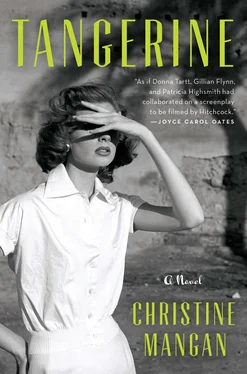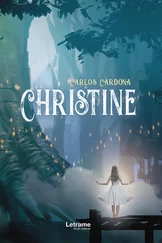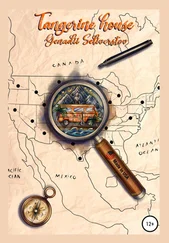Maude watched me now, her eyes sharp, missing nothing. “I had considered it,” she said, breaking the silence. “After her parents died. She was inconsolable, you know. Beyond normal grieving.” She glanced at me, hurried and quick, so that I knew her next words would be important. “She had convinced herself that she was to blame for their deaths.”
I remained silent, letting the idea grow in the light between us: the image of the poor orphaned girl whose presence had wrought so many deaths. And then, though I couldn’t explain why, I felt as though something had been decided. As if Maude had used the time, the silence, to question, to ponder, to decide. She turned to me, and I no longer saw a lost and confused woman but rather one with a purpose, with a plan.
Her eyes narrowed. “I was sorry to hear about your family’s misfortunes. I had meant to tell you that earlier.”
“Oh?” I asked, eyebrows raised, eager to see what it was that she seemed to have arrived upon—and what part Sophie Turner would have to play in it.
“Yes.” She paused. “You see, I have an idea, but it would require some assistance.” When I did not object, she continued, “I would need you to do something for me, in Spain, if you thought you could manage it. And you would be compensated, of course, for your time. Alice receives a small monthly allowance from her trust, and I could have this sum forwarded to you there, in the meantime. The bank would handle all the details, so you wouldn’t have to worry about a thing.”
“Yes, I see,” I said, though I didn’t quite, not just yet. But I knew that I would soon, that Maude trusted me completely, that she believed the woman who sat before her, Sophie Turner, was good and decent and worth helping. And while it was true that I had already made a plan, I was intrigued to see where Maude was heading, if her plan might be more beneficial in the long run.
I weighed the risks, considered the odds—brought to mind that sad, anonymous room in the boardinghouse—and quickly agreed.
Maude nodded in acknowledgment. “Her behavior today has convinced me what must be done.” She looked away, toward the window. “Of what should have been done, long ago.”
THE POLICE CAME EARLY THE NEXT MORNING.
I had expected them to, of course, knew that the time between when they would knock on my door and when I would be left in peace—in quiet, in that in-between state where I could still pretend that something horrible hadn’t happened, that it was all just a dream—was inching closer and closer.
John was dead. They had told me the day before—Maude and Lucy—though it had still failed to become real, to work itself into my mind as the truth, something concrete and unwavering that could not be challenged, changed, or altered. I had lain in bed, Maude tucking me in as though I were a child, an invalid, a problem she could never quite manage to shake, and I felt the word reverberating in my mind. Dead. It was all too familiar, and yet somehow foreign. It couldn’t be true, I wanted to tell my aunt, feeling her tug and pull at the sheets. John couldn’t be gone, couldn’t be dead. He was the one, I wanted to explain to her, the one who was supposed to pull me up and out of the depression, out of the darkness that had swirled around me ever since that bitter cold night in Vermont. Since before that, even. He couldn’t be gone, couldn’t be dead.
My mind simply would not accept it. Not even later, when they showed me his body under the harsh, glaring lights of the coroner’s office, the color draining from my face as I stepped backward, staggering, conscious all the while of Aunt Maude beside me, of the officers’ eyes evaluating my every movement, every intake of breath. I felt them—all of them—waiting, watching, for the tears, for the hysterics. For a performance that I did not seem to have the energy to enact.
I turned away, setting my face to stone.
“Madame?”
I looked up at the two officers, their faces hesitant, uncertain—as if they were afraid, I thought. I wanted to laugh then, for what on earth had they to fear from me? I wanted to know. I was moved to ask them—but then the weight of the moment, the emotions that I was supposed to be feeling, that they were expecting me to display, became all too much. I nodded at the men—a clipped little gesture, something like a bow—and started to back away, heading toward the door. It was the same feeling I had experienced at Café Hafa, at countless other moments in my life, when the panic had started rising in me, the feeling of being trapped threatening to overtake me so that I needed nothing so much in that moment as to be able to leave the space I was confined within. Despite this, I paused, looking to my left, to my right, convinced that there was something missing, something I was forgetting.
It was Lucy, I suddenly realized.
I had been looking for Lucy.
This time, I did laugh.
“Madame.” I heard the officer speak again, could feel Aunt Maude’s sharp eyes on me, but still, I could not respond, could not do anything but turn and walk away, out of the coroner’s office, out into the hallway filled with doors, though none of them seemed to hold the exit I was searching for. I pushed up against one, and then another, each of them refusing to yield. There was no way out—I was trapped, stuck in this labyrinthine hall.
A figure emerged in front of me. “Madame McAllister?”
No one had ever called me by my husband’s name. I thought about the absurdity of it: hearing it for the first time while standing only steps away from his corpse. “Shipley,” I whispered, my voice trembling. “My surname is Shipley.”
The man frowned. “All right, Madame Shipley.” He paused, indicating the door next to him. “Follow me, please.”
The man standing in front of me was not particularly large, his eyes reaching just a fraction above my own, and yet there was something about him, something that made me pause, something that made my heart begin to pound in fear. He was quite obviously of a higher rank than the two previous officers that I had spoken with, and I wondered what he wanted. I looked at the door that he had pointed toward, filled with panic at the thought of what might be hidden just behind it. There was too, somewhere at the back of my mind, the vague realization that I should ask exactly who he was and what he wanted, but the only question I could manage was, “Where are we going?”
“To my office,” he answered simply, offering no more explanation than that.
I felt a hand on my shoulder and turned to find Aunt Maude, a light sheen of sweat breaking just above her lip. “You heard the man, Alice,” she said, her voice terse. “Let’s go inside.”
The man frowned, disappointed, it seemed, that she would be accompanying us.
His office was sparse, little else dotting the walls besides the thin layer of yellow paint that seemed to be peeling, flaking in the corners. I settled into one of two chairs placed in front of his desk, Aunt Maude taking the other.
Once we were seated, the officer lowered himself into his own chair behind the desk and leaned forward. “Madame Shipley,” he began. “Do you know of any reason why a man by the name of Youssef might have been in possession of your husband’s articles?”
I shook my head, surprised by the question, for whatever it was that I had been expecting, it was not this. But then something poked, needled, and I remembered what Lucy had said the other night to the policeman, about Youssef.
“No,” I whispered, my voice low and hoarse. “I have no idea.”
He frowned, watching me. “Are you quite all right, madame?”
I considered telling him then. About Lucy, about how she had deliberately mentioned Youssef to the policeman, how she had, more than likely, been responsible for whatever it was that they were talking about. I considered telling him this and everything else that had happened—but then I noticed the way that he was looking at me, his features sharp and narrow, and the words died on my lips.
Читать дальше












